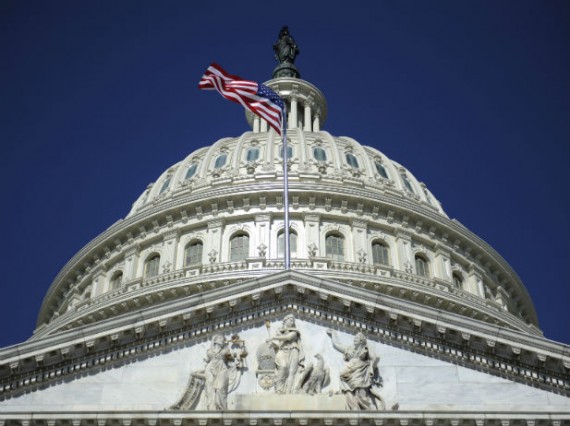
While the negotiations between the Republic of Sudan and the Republic of South Sudan in Addis Ababa recently brought some outstanding issues between the two countries to a close—at least on paper—many post-referendum disputes have yet to be solved. With an interest in considering the role the U.S. government should play at this important moment, Congressional staff and the Partnership for a Secure America hosted a closed-door panel last week to discuss the evolving issues in Sudan and South Sudan.
Hosted in part by the African Congressional Staff Association, the panel offered expert opinions on the current humanitarian crisis in South Kordofan and Blue Nile states as well as insight in the underpinning issues that perpetuate conflict in and between the two Sudans. The Enough Project’s own Jennifer Christian, Sudan/South Sudan Policy Analyst, along with Jon Temin of the United States Institute for Peace and Lauren Ploch Blanchard of the Congressional Research Service, offered recommendations for action the United States Congress can take to mitigate conflict and prevent further conflict from breaking out. While the terms of the meeting prevent us from providing a full breakdown of who said what, here’s a recap of the topics Enough’s Jennifer Christian raised for guidance on what Congress should do next.
In South Kordofan and Blue Nile states, crucial food aid and medical assistance have consistently been denied. The government of Sudan has stalled every attempt at negotiation to bring in aid and has ignored international agreements aimed at addressing the humanitarian crisis, including the Tripartite Proposal, U.N. Security Council Resolution 2046, and the Memorandum of Understanding that Khartoum signed with the Tripartite Partners—the U.N., the A.U., and the League of Arab States—in August 2012.
“Negotiated access is by far the best way to deliver aid to the two states,” Christian said, but the international community, especially the U.S., must explore alternatives in the event Khartoum continues to deny access. Christian also stipulated that if aid is ever going to reach those populations trapped in areas under the control of the Sudan People’s Liberation Movement-North, or SPLM-N—which is estimated at 400,000 civilians—planning for delivery must begin now.
The agreements made between Sudan and South Sudan in recent weeks are encouraging, but Christian noted in her closing remarks that there are many underlying issues in both countries that need to be resolved if long-term solutions are to be found. Fundamental social and economic marginalization is at the root of conflicts in South Kordofan and Blue Nile, Darfur, and Jonglei, among others. The international community and the two Sudans must prioritize solving these underlying issues if we are to see lasting peace in the region.
Photo: U.S. Capitol

